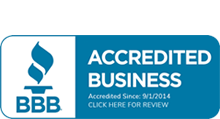Another in a series of articles related to association management selected from our reading list by:
Robert O. Patterson, JD
CEO/ Principal
The Center for Association Resources, Inc.
For example, non-profit organizations provide immense value to the communities they serve in the form of meaningful work and improvement in the quality of life. Yet despite the magnitude of the services they provide, operating budgets for most small non-profits are often under $500,000–minuscule in comparison to the services they provide. This paucity of funding leads to the need for enormous amounts of creativity and flexibility on the part of the management team.
Despite the unique challenges they pose, non-profits nevertheless offer the opportunity to bring together people who share common values, an enthusiasm for community action, and the entrepreneurial spirit necessary for the successful maintenance of any organization–something that quite a few experienced managers find exciting. Ironically, however, one of the greatest obstacles the non-profit manager faces is finding the ways and means to accomplish the kind of joint collaboration that is essential to keeping these critical stakeholders energized and motivated. Regular meetings involving both management personnel and the organization as a whole are absolutely necessary to keep any non-profit functioning with maximum efficiency.
According to Whitney Archibald of Exhibitor Magazine, the negotiation process for securing an affordable deal with a desirable location should begin before the non-profit manager even speaks to the hotel event coordinator, when the management team designates the person who will be responsible for negotiating with the venue.
Of course, it stands to reason that you should also get everything in writing, right down to the color of the napkins on the hors d’oeuvres table (some venues will charge extra for any color other than white or the dining room’s “signature color.”) Do not assume that because something was discussed verbally it will be included. While an oral contract may be legally binding, a written contract is always the best protection for your organization.
Think about amenities. Very often you can negotiate the use of hotel amenities for your group for free if you do a bit of homework beforehand to see what amenities your group might enjoy. Some hotels may allow free use of the pool and hot-tub but charge prestigious fees for a massage. If your group is small and you don’t plan on using the pool, for example, perhaps you can negotiate free neck massages for anyone who wants one on the first afternoon of the event. On the other hand, if your membership does not mind giving up some amenities, you may be able to use that fact to negotiate a lower room rate or a free continental breakfast.
Another suggestion is to never, ever pay for the use of meeting rooms. Virtually every hotel has more meeting rooms than it ever uses, or it uses them once a year for a single event. You can easily capitalize on this knowledge. Offer to hold break-out groups in the smallest meeting rooms for free, rather than paying to hold a single discussion group in the one large room available. This leaves the hotel the option of scheduling a profitable last minute meeting in the larger conference room; you save money, and your attendees will most likely be more productive.
Remember, too, that the recession is still taking its toll on the United States and world economies. Rates for almost everything in the hospitality industry are significantly lower than they were a few years ago and it is safe to predict that they will increase as soon as the economy stabilizes. Do not be afraid to capitalize on this by reserving ahead, thereby locking in your rate a few years in advance.







